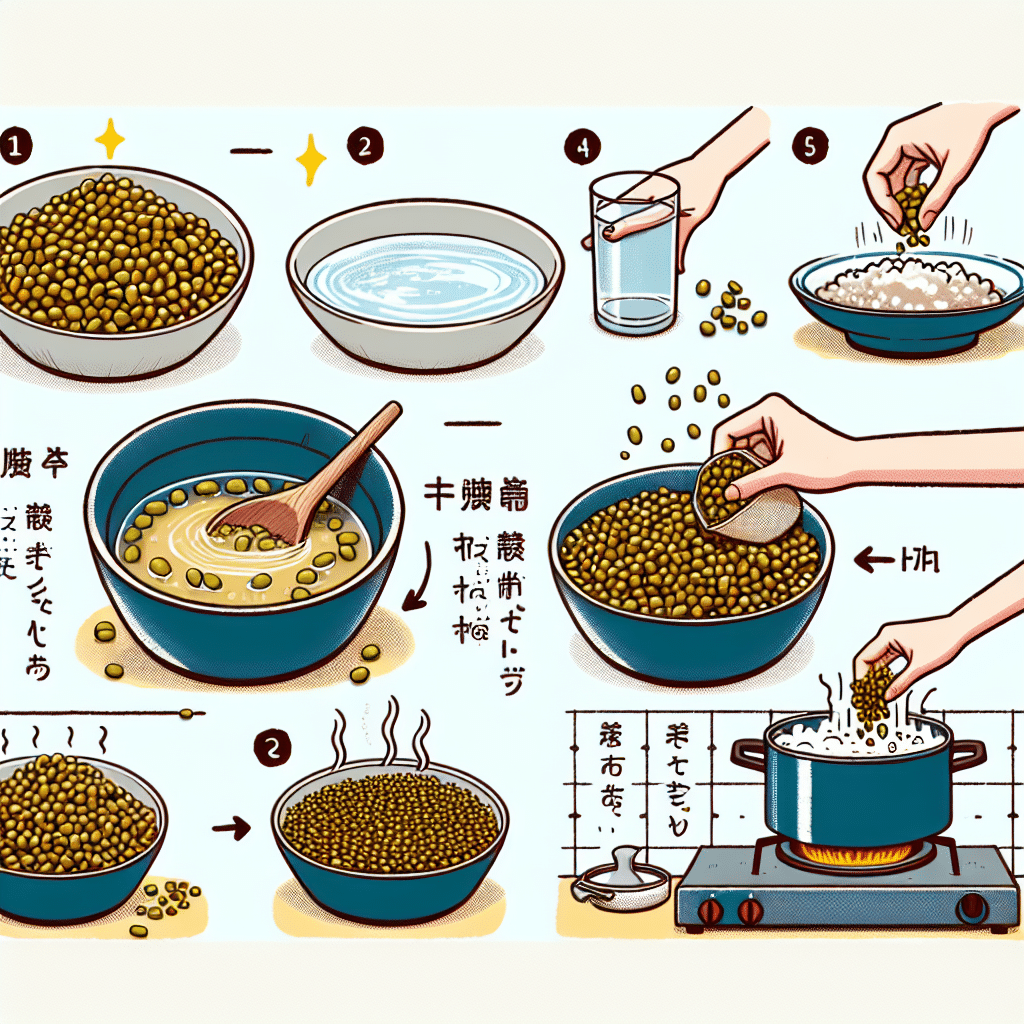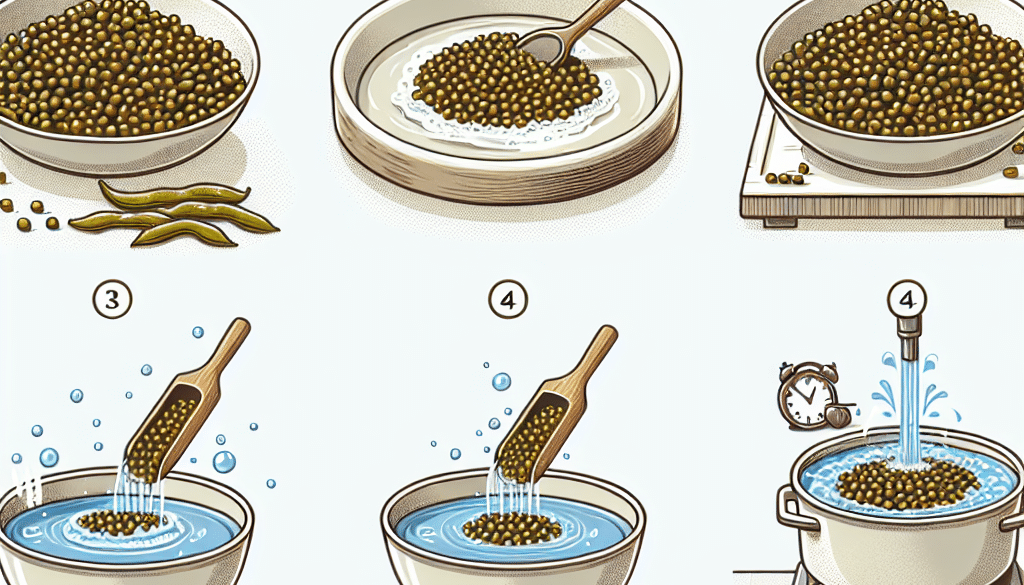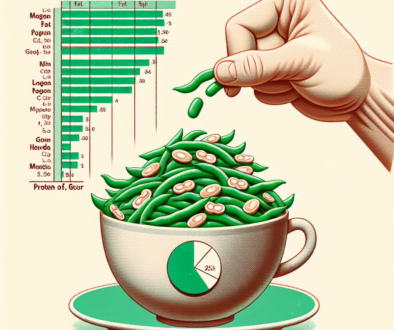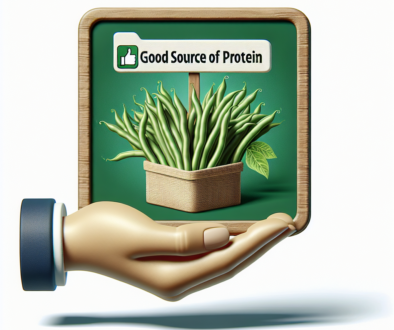Do You Have To Soak Mung Beans Before Cooking?
-
Table of Contents
- Soaking Mung Beans Before Cooking: Is It Necessary?
- Understanding Mung Beans
- To Soak or Not to Soak: The Debate
- Reasons for Soaking Mung Beans
- Arguments Against Soaking Mung Beans
- How to Soak Mung Beans
- Alternative Methods: Quick Soak and No Soak
- Quick Soak Method
- No Soak Method
- Health Benefits of Mung Beans
- Conclusion: To Soak or Not to Soak?
- Discover ETprotein’s High-Quality Protein Products
Soaking Mung Beans Before Cooking: Is It Necessary?

Mung beans, a staple in many Asian cuisines, are renowned for their versatility and health benefits. These small, green legumes are packed with protein, fiber, and essential nutrients, making them a popular choice for vegetarians and health-conscious individuals alike. A common question that arises when preparing mung beans is whether they need to be soaked before cooking. This article delves into the soaking process, its benefits, and its necessity for cooking mung beans.
Understanding Mung Beans
Mung beans, also known as Vigna radiata, are part of the legume family and are closely related to lentils and chickpeas. They are used in a variety of dishes, from soups and stews to salads and desserts. Mung beans can be purchased whole, split, or as bean sprouts, each form offering different culinary uses and preparation methods.
To Soak or Not to Soak: The Debate
The practice of soaking beans before cooking is a topic of debate among cooks and nutritionists. Some argue that soaking is essential for reducing cooking time and improving digestibility, while others claim it is an unnecessary step. Let’s explore the reasons behind both perspectives.
Reasons for Soaking Mung Beans
- Reduced Cooking Time: Soaking mung beans can significantly shorten their cooking time. This is because the beans absorb water, which helps them cook faster when subjected to heat.
- Improved Digestibility: Soaking can help break down some of the complex sugars in beans that are responsible for gastrointestinal discomfort and gas. This process can make mung beans easier to digest for some individuals.
- Better Texture: Soaked mung beans tend to have a more consistent texture after cooking, with a reduced likelihood of the beans splitting or becoming mushy.
Arguments Against Soaking Mung Beans
- Time Constraints: Soaking beans requires planning ahead, which may not be convenient for everyone. Quick cooking methods, such as using a pressure cooker, can negate the need for soaking.
- Nutrient Preservation: Some argue that soaking may lead to the loss of water-soluble nutrients, which can leach out into the soaking water.
- Mung Beans’ Size: Mung beans are smaller than many other legumes, which means they naturally cook more quickly and may not require soaking to achieve a desirable texture.
How to Soak Mung Beans
If you decide to soak your mung beans, here’s a simple guide to follow:
- Rinse the mung beans thoroughly under running water to remove any dirt or debris.
- Place the rinsed beans in a large bowl and cover them with about two to three times their volume of water.
- Let the beans soak for at least 4 hours, or overnight for best results. If soaking for longer periods, it’s advisable to refrigerate the beans to prevent fermentation.
- After soaking, drain and rinse the beans again before cooking.
Alternative Methods: Quick Soak and No Soak
For those short on time or who prefer not to soak their mung beans, there are alternative methods:
Quick Soak Method
- Place the mung beans in a pot and cover them with water.
- Bring the water to a boil and let it simmer for about 2-3 minutes.
- Remove the pot from heat, cover it, and let the beans stand for an hour.
- Drain, rinse, and proceed with cooking.
No Soak Method
- Rinse the mung beans thoroughly.
- Cook them directly in a pot or pressure cooker with an increased cooking time compared to soaked beans.
Health Benefits of Mung Beans
Mung beans are not only easy to prepare but also offer a wealth of health benefits:
- Rich in protein, making them an excellent plant-based protein source.
- High in dietary fiber, which aids in digestion and promotes a feeling of fullness.
- Contain antioxidants that help combat oxidative stress and inflammation.
- Low in calories, which can support weight management efforts.
Conclusion: To Soak or Not to Soak?
In conclusion, whether to soak mung beans before cooking is a matter of personal preference and convenience. Soaking can reduce cooking time, improve digestibility, and enhance texture. However, it is not strictly necessary, especially for smaller legumes like mung beans. Quick soak and no soak methods offer alternatives for those pressed for time or who prefer not to soak. Regardless of the method chosen, mung beans remain a nutritious and versatile ingredient in any diet.
Discover ETprotein’s High-Quality Protein Products
If you’re interested in incorporating more plant-based proteins into your diet, ETprotein offers a range of high-quality protein products. Their mung bean protein is an excellent choice for those looking for a nutritious, allergen-free, and non-GMO protein source. ETprotein’s commitment to quality ensures that you receive the best product for your health and dietary needs.
About ETprotein:
ETprotein, a reputable protein and L-(+)-Ergothioneine (EGT) Chinese factory manufacturer and supplier, is renowned for producing, stocking, exporting, and delivering the highest quality organic bulk vegan proteins and L-(+)-Ergothioneine. They include Organic rice protein, clear rice protein, pea protein, clear pea protein, watermelon seed protein, pumpkin seed protein, sunflower seed protein, mung bean protein, peanut protein, and L-(+)-Ergothioneine EGT Pharmaceutical grade, L-(+)-Ergothioneine EGT food grade, L-(+)-Ergothioneine EGT cosmetic grade, L-(+)-Ergothioneine EGT reference grade and L-(+)-Ergothioneine EGT standard. Their offerings, characterized by a neutral taste, non-GMO, allergen-free attributes, with L-(+)-Ergothioneine purity over 98%, 99%, cater to a diverse range of industries. They serve nutraceutical, pharmaceutical, cosmeceutical, veterinary, as well as food and beverage finished product distributors, traders, and manufacturers across Europe, USA, Canada, Australia, Thailand, Japan, Korea, Brazil, and Chile, among others.
ETprotein specialization includes exporting and delivering tailor-made protein powder and finished nutritional supplements. Their extensive product range covers sectors like Food and Beverage, Sports Nutrition, Weight Management, Dietary Supplements, Health and Wellness Products, and Infant Formula, ensuring comprehensive solutions to meet all your protein needs.
As a trusted company by leading global food and beverage brands and Fortune 500 companies, ETprotein reinforces China’s reputation in the global arena. For more information or to sample their products, please contact them and email sales(at)ETprotein.com today.














